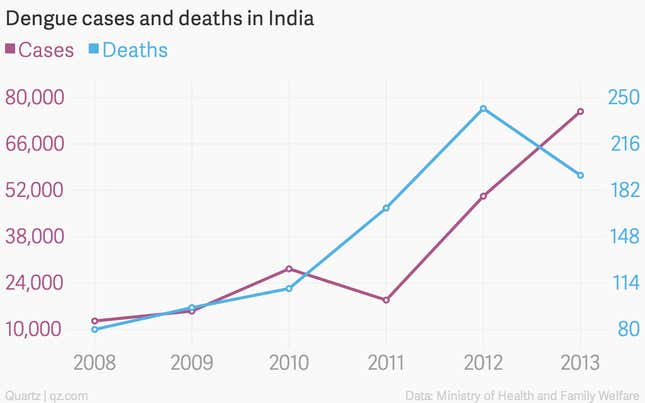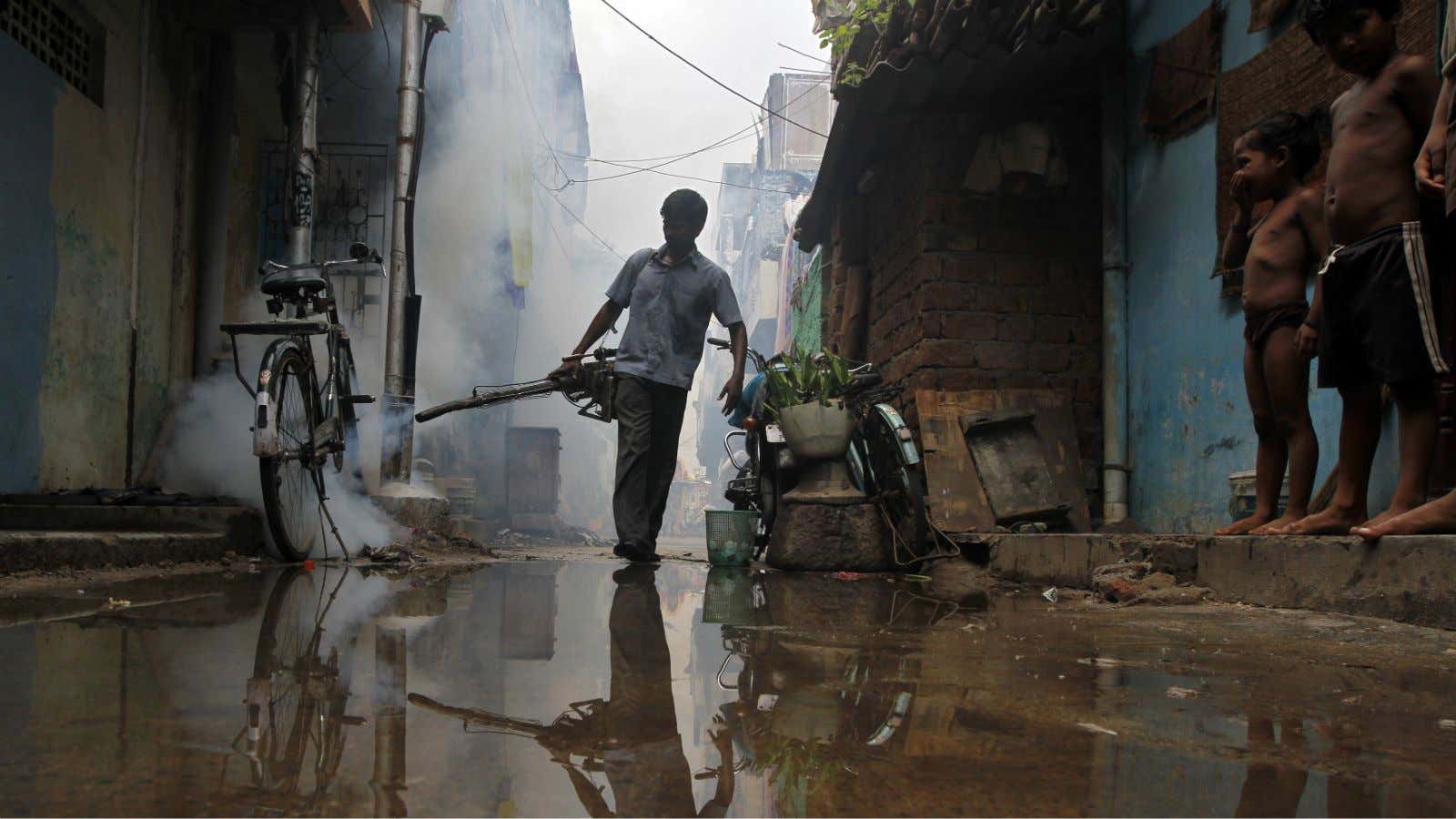On Nov. 3, French drugmaker Sanofi announced that it would have the world’s first vaccine against dengue (PDF) ready by next year.
The mosquito-borne disease is a threat to over 2.5 billion people, according to WHO, including an estimated 500,000 people who are hospitalized every year due to severe dengue, which can be hemorrhagic. About 2.5% of those affected typically die.
In 2010, India was responsible for an estimated 34% of dengue infections worldwide (PDF)—and according to government data, the number of infections and deaths have spiked since.

These numbers, however, may not be entirely accurate.
A study by US and Indian researchers show that the actual number of dengue cases in India may be 300 times higher (PDF, page 1) than the official records. India had 20,474 recorded dengue cases between 2006 and 2012, but the actual number could be close to 6 million because it is heavily underreported.
Clinical studies conducted by Sanofi involving 31,000 participants across 10 countries where dengue is endemic in Asia and and Latin America show the vaccine provides 95.5% protection against severe dengue.
Although dengue vaccines have been in development since the 1940s, Sanofi has been leading the effort for the last few years. In 2012, there were 10 dengue vaccines under development (including five in clinic stages), with Sanofi leading the pack because it was ahead in terms of progress of clinic trials.
The French pharmaceutical firm has been working on the vaccine as far back as 1994 (PDF), when it entered into a partnership with the Vaccine Development Centre at Thailand’s University of Mahidol.
